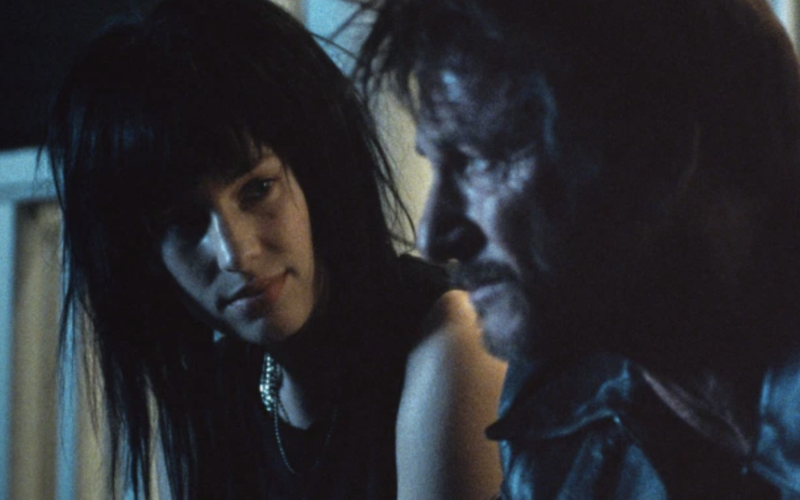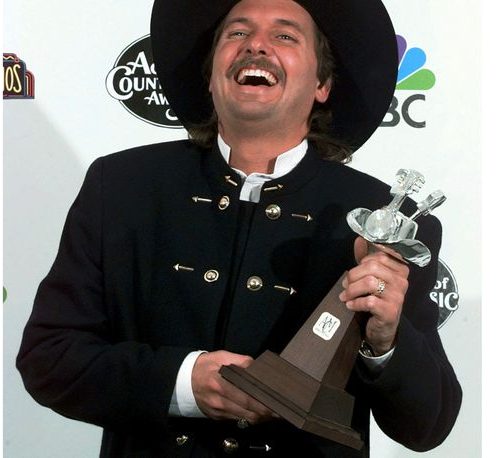BY DAVID ROONEY | HollywoodReporter.Com
Troy Warren for CNT
The director-star appears opposite his daughter Dylan Penn in this adaptation of Jennifer Vogel’s memoir about her conflicted love for her counterfeiter father.
Sean Penn’s directing career has followed an erratic trajectory, channeling raw feeling in his 1991 debut The Indian Runner, peaking with the ruminative 2007 survival drama Into the Wildand taking a nosedive with 2016’s tone-deaf The Last Face, which used a backdrop of human rights violations in Africa to spin a tortured romance between beautiful Westerners. He returns to the Cannes competition five years after that fiasco with Flag Day, which is a significant improvement even if its sincere intentions can’t get past the prosaic portrait of a con man making a reckless grab for the American Dream.
This is Penn’s first time directing himself, starring opposite his daughter Dylan Penn (and in a smaller role, his son Hopper Jack Penn) in an adaptation of journalist Jennifer Vogel’s 2005 memoir Flim-Flam Man: The True Story of My Father’s Counterfeit Life.
As a study of complicated family dynamics, of binding love intertwined with the hurt of a man who fails those closest to him over and over again, the film is hindered by a surprisingly pedestrian screenplay from talented brothers Jez and John-Henry Butterworth that ladles on the literary voiceover to anesthetizing effect. But it also succumbs to Penn’s worst indulgences, loading up on big actor-ish explosions of volatility rather than trying to get to the lost soul of a desperate man and the yearning of a daughter who wants so badly to believe that he’s capable of change.
The title comes from John Vogel’s birthday on June 14, a date that commemorates the adoption of the U.S. flag in 1777. After the bank has foreclosed on yet another property he bought on a purchase plan beyond his means, his jaded mother (Dale Dickey in a brief but always welcome appearance) says, “Never trust a bastard born on Flag Day.” Calling himself an entrepreneur, John has a history of buying up houses and businesses he can’t afford, then either disappearing or torching the buildings. His daughter Jennifer (Dylan Penn) observes in her endless narration that he believed being born on Flag Day meant the country owed him a celebration.
The movie starts at his inevitable end in 1992, the culmination of a six-month police manhunt after John skipped bail. Regina King makes a cameo as a sympathetic U.S. marshal who knows how it feels to lose a father; she gently talks Jennifer through the chaotic events she has watched play out on live TV news, explaining that John printed $22 million in fake bills and faced up to 25 years in prison.
The action then skips back to different points in the 1970s and ‘80s, with Jennifer and her younger brother Nick played at age 6 and 4, respectively, by Addison Tymec and Cole Flynn, and in their tween years by Jadyn Rylee and Beckam Crawford before Penn’s own children step in. Jennifer recounts how John came and went from their lives throughout their childhood, trying to make every impulsive decision look like it was part of a plan. When the latest plan implodes in the summer of 1975, he takes off, leaving their mother Patty (Katheryn Winnick) with unpaid bills, chronic depression and a drinking habit.
When Patty is no longer able to cope, the kids are taken by their Uncle Beck (Josh Brolin) to live with their dad and his much younger new girlfriend Debbie (Bailey Noble). But his debts once again catch up to him in brutal fashion, prompting more disruption. By the time Jennifer is a goth high schooler, she’s doing drugs and seems likely to follow her father’s dark path. When Patty’s new man Doc (Norbert Leo Butz) attempts to sexually assault her and her mother chooses to remain blind to his sleaziness, Jennifer storms off and boards a Greyhound bus to find her dad.
From relatively early on, the screenplay settles into a repetitive pattern of upheaval, fresh starts and bitter disappointments, punctuated by so many bouts of screaming rage they pack little punch. The film could have used more of its quieter moments, like an emotional farewell between Jennifer and Nick, in which he clearly feels abandoned but understands that his sister has no choice.
When she finds John, Jennifer becomes determined to straighten out both herself and her dad, and he plays along, buying a briefcase for an invented position in executive sales management. He even holds down a routine job driving airport freight vehicles for a time, but it’s not long before his criminal urges take hold again with a bank robbery, adding to a trail of failed schemes and laundered money.
As both actor and director, Penn obviously is drawn to outlaw characters who have bought into the myth of America as a land of opportunity for all. He conveys affection and compassion for the self-delusion that allows John to think of himself as an adventurer and to transmit that joy to his daughter. We’ve seen this character countless times before, but the movie falters even more when he’s not around. While Dylan Penn’s performance is fine, the writing becomes self-conscious in its mix of grit and downbeat poetry as Jennifer is flung out on her own, hanging with junkies and no-hopers in a series of bad wigs as she tries to figure out who she’s destined to become.
There are amusing ironies laced through the script — that Jennifer tries to scam her way into a college journalism course using tricks she picked up from her dad but instead makes it based on her natural ability; that John spent his time in prison working in the print shop, learning skills that would facilitate his grandest scheme.
But too much of the drama feels predictably familiar, despite its “based on a true story” stamp of authenticity. “People do change,” John tells Jennifer when he resurfaces while on parole after she has begun working at Minneapolis alternative newspaper City Pages. We know that Jennifer is right to be wary of letting him back in her life, not just because the end of the story has already been revealed but because of the preprogrammed feel of the script and the boilerplate character arc.
Simply being able to get actors like King, Brolin, Butz, Dickey and Eddie Marsan for tiny roles shows that Penn still commands industry respect, and he surrounds himself with capable craftspeople. The mix of gentle guitar on Joseph Vitarelli’s score with original songs by Cat Power, Glen Hansard and Into the Wild collaborator Eddie Vedder, in particular, adds texture. And DP Danny Moder shoots the establishing scenes of father-daughter love through the golden haze of memory (a reminder of the Terrence Malick influence on Penn), in contrast to the bleaker look as John’s lies become impossible to buy.
It’s just too bad there’s not more of a personal stamp on the material to rescue it from its indie-film clichés. Flag Day is not a complete misfire, and if a no-name director had made it, the movie would probably get a pass. But considering the emotional stakes involved it’s neither terribly memorable nor moving.
In Other NEWS



































